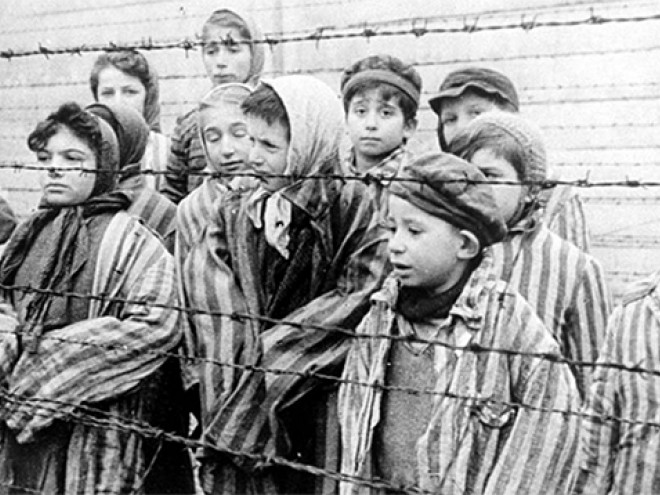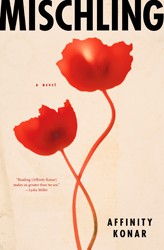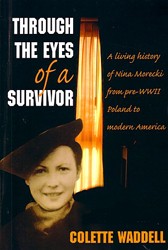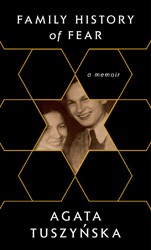Affinity Konar is the author of the novel Mischling and is guest blogging for the Jewish Book Council all week as part of the Visiting Scribe series here on The ProsenPeople.
The Polish countryside flashed through the tour bus window: white chickens, nodding sunflowers, children on bikes. That such prosaic scenes could exist in such proximity to where the horrors had occurred was disorienting. I felt small, returned to a childish state.
Part of this reversion was due to the fact that I’d come to Poland as a grown woman accompanied by two overly-proud parents who boasted to any English-speaker about my novel, Mischling. I’d wanted to prove to myself that I could handle this trip alone, but when the birches of Oświęcim began to flash, signaling our proximity to Auschwitz, I was too grateful for the fact that they watched over me.
Because while I’d written a novel about the twin experiments at Auschwitz, I never imagined that I would see the camps myself. For over a decade, I’d studied narratives, photographs, personal histories. Long before the book’s genesis, as a teenager, I’d read every piece of Shoah literature I could find. So while no one can prepare for such depthless sorrow, I didn’t imagine I’d be broken by the mere sight of the woods that bordered Auschwitz. But too much history was suggested by these birches. They were woods that had been spied through the windows of cattle cars. The fact that they were beautiful, still, seemed an insult.
And once we arrived at Auschwitz I and stepped beneath the gate, with its message inscribed in the dust in shadow, it became clear that my emotions would bear more complexity than I could’ve anticipated. We walked through the place I’d long ago read described as a little city with window boxes and garden plots, from the building that housed the orchestra to sites of torture and death. To places I couldn’t bring myself to photograph, and places we were thankfully informed could not be photographed.
What couldn’t be photographed had been shorn and stolen and now sits under glass; it is mass dehumanization made visible. What couldn’t be photographed is what I will never forget the most. I know that the sight of it must reinvent grief and sorrow for many, that it must follow us as it should, but even now, at some distance I wonder, how we’re able to see such a sight and still speak. One would think that seeing such horror should make me unable to even write this, and yet, I was witnessing its effects at an extreme remove. The fact that poets and writers who survived found a way to articulate the unspeakable — I hadn’t thought my awe could ever increase, but there I was, trying to fathom, yet again, how they came by their bravery.
 I tried to take a photograph of a child’s suitcase. His name was blurred by the shakiness of my hand. I erased the photograph. I didn’t take another. But the name remained: Pavel Kohn. Born 1935.
I tried to take a photograph of a child’s suitcase. His name was blurred by the shakiness of my hand. I erased the photograph. I didn’t take another. But the name remained: Pavel Kohn. Born 1935.
So much of Auschwitz blurred like that photograph, as if my mind wanted to keep a safe distance. Even the site of Rudolf Höss’ execution felt indistinct. I thought of my teenage self, obsessed with Nazi hunters and vengeance — back then, I would’ve thrilled to this sight. But to the right of those gallows, I saw the eaves of the Höss house, where his wife had boasted of a luxurious life, and this unseated the slightest glimmer of satisfaction.
To steady myself, I retraced my introduction to this place, Primo Levi’s Shema:
Consider whether this is a man,
Who labours in the mud
Who knows no peace
Who fights for a crust of bread
Who dies at a yes or a no.
We boarded the bus and traveled to Auschwitz II. I saw the path the twins had walked, over and over, dressed in striped uniforms they’d never worn, for the Red Army’s footage of liberation. I saw that so much had been destroyed by Nazi hands in their eagerness to cover their crimes. Here, there were blank spaces to signify torment, all questioning the viewer. How was suffering endured? What did one held onto, or invent? How did saving someone save you? How many doomed themselves saving others?
Our guide, a resident of Oświęcim, whose ancestors were victims of the camps, offered story after story, all beautifully told. I’d hear one name and wonder how many other names have gone unrecognized. I’d hear an account of resistance, and wonder about others lost to us. I’d walk through the women’s barracks and wonder about the relationships between mothers, daughters, sisters, friends, strangers whose details will never be fully known. Some speak of a catharsis in visiting Auschwitz. I didn’t feel that — if I did, it took a mysterious form. Because what I truly felt was this: a belief that the wondering will be endless. And it should be.
Affinity Konar was raised in California and holds an MFA from Columbia University.
Related Content:
- Auschwitz-Birkenau, January 27, 2015: A Poem by Menachem Z. Rosensaft
- Nat Bernstein: A Literary Forest of Birch Trees
- R. D. Rosen: Occupational Hazards and Emotional Realities in Writing About the Holocaust
Affinity Konar received her MFA from Columbia and lives in Los Angeles, CA.




